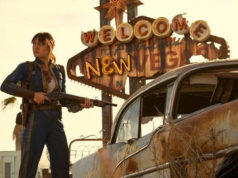People who think of musicals as light and fluffy entertainment have been surprised that Tim Burton is doing one, even though previous Burton movies have burst into song and dance.
Stephen Sondheim’s corpse-strewn 1979 Broadway musical Sweeney Todd: The Demon Barber of Fleet Street is far from light and fluffy, which is why it comes at a good moment for Burton, whose last few films have been clogged with cotton candy. The composer’s thorny, perfumed music and the director’s somber, romantic vision are a great pairing (though it’s much harder to imagine Burton adapting Company or Merrily We Roll Along to the screen), and it makes this period slasher flick the best Tim Burton movie this century.
The story of Sweeney Todd first surfaced in the mid-19th century as an urban legend and became the subject of various songs, stage plays, and films before Sondheim came along. Johnny Depp plays a barber named Barker, who was once unfortunate enough to have a wife (Laura Michelle Kelly) who attracted the lust of Judge Turpin (Alan Rickman). Fifteen years after the venal judge had Barker sent to prison in Australia on trumped-up charges, the barber returns to London under the name Sweeney Todd, to find that his wife killed herself after the judge raped her and that his almost-grown daughter Johanna (Jayne Wisener) is now Turpin’s unhappy ward. Todd vows to use his razors to exact revenge on the men who ruined his life, with the help of an unwitting sailor (Jamie Campbell Bower) in love with Johanna and Todd’s landlady Mrs. Lovett (Helena Bonham Carter), who grinds the corpses of his victims into the meat pies she serves at her shop.
The film sports the arresting look of an Aubrey Beardsley drawing come to life, as Burton and cinematographer Dariusz Wolski turn the screen into a sea of blackness, dotted with deathly white faces and the prominent white streak in Todd’s hair. There are precious few splotches of color besides gushing red blood and the frilly powder-blue outfit worn by Todd’s devious, foppish rival barber Adolfo Pirelli (Sacha Baron Cohen). Baron Cohen’s fruity, preening comic stylings add some badly needed relief here, but elsewhere Burton maintains a remarkably consistent tragic tone and inky color palette. Even when Sondheim’s score is at its most achingly lyrical, the director doesn’t let a single ray of sunshine light the proceedings. This approach might be suffocating in less skilled hands, but Burton makes it powerfully convincing, balancing his compositions on a razor’s edge. (Yeah, I went there.)
The music is orchestrated by Jonathan Tunick and conducted by Paul Gemignani, names that Sondheim fans will immediately recognize and find reassuring. The score is drastically pared down from the stage show’s, but it does no violence to Sondheim’s splendiferous melodies and lyrical wit that can tickle or wound you just as easily. The duet “Pretty Women” loses none of its drama, the rapturous music creating unbearable tension as Todd plans to slit the judge’s throat while he’s still singing the song’s last notes.
This music is treacherously difficult; the show is often produced by opera companies instead of theater troupes. The best singers in this vocally light cast are the least-known ones: Wisener’s tiny little soprano suits the fragile loveliness of “Green Finch and Linnet Bird,” and Campbell Bower’s muscular tenor fills out “Johanna” in bluff, inspiring fashion. Bonham Carter cuts against the grain by playing Mrs. Lovett as a mousy, skittish, and easily manipulated woman, rather than as a blowsy harridan like the character’s often played on stage. Sadly, the fresh interpretation doesn’t make up for Bonham Carter’s voice, which is totally inadequate to the balladry of “Wait” or even the comic patter of “The Worst Pies in London.” The black-comic duet “A Little Priest” that marks the film’s turning point is wrecked by her singing. Burton really should have cast someone other than his wife.
Thankfully, Depp is in magnificent form. He occasionally strays from Sondheim’s rhythms, and his musical rendition of “I will have vengeance!” in “Epiphany” leaves you wishing for the volume of a classically trained voice. Still, his singing is steady, on pitch, and full of malevolent purpose, and whatever he lacks in vocal firepower, he more than makes up for with brooding screen presence. Depp has played a few villainous roles lately (Secret Window, The Libertine) but never has he made such a part leap off the screen and fill the theater with his evil – his murderous scream of “Benjamin Barker!” before his final act of revenge will ring out in your memory. Yet he also gives an all-too- human element to this monster, playing up Todd’s loneliness and despair at the world’s wickedness. The soulfulness of Depp’s performance and the resplendent beauties of both score and screen make Sweeney Todd a bloody feast for the moviegoer.
Sweeney Todd: The Demon Barber of Fleet Street (see pg. 38)
Starring Johnny Depp and Helena Bonham Carter. Directed by Tim Burton. Written by John Logan, based on Christopher Bond’s play and Stephen Sondheim and Hugh Wheeler’s musical. Rated R.












However, there are certain procedures to be followed to ensure your house is
in a viable windy location, without high obstructions
nearby. There was a little pomegranate flavor in here too, just enough to give it a little
something special – not much, but a little. Soon after, I
noticed the signs posted all over Camden Town to beware of the pickpockets.